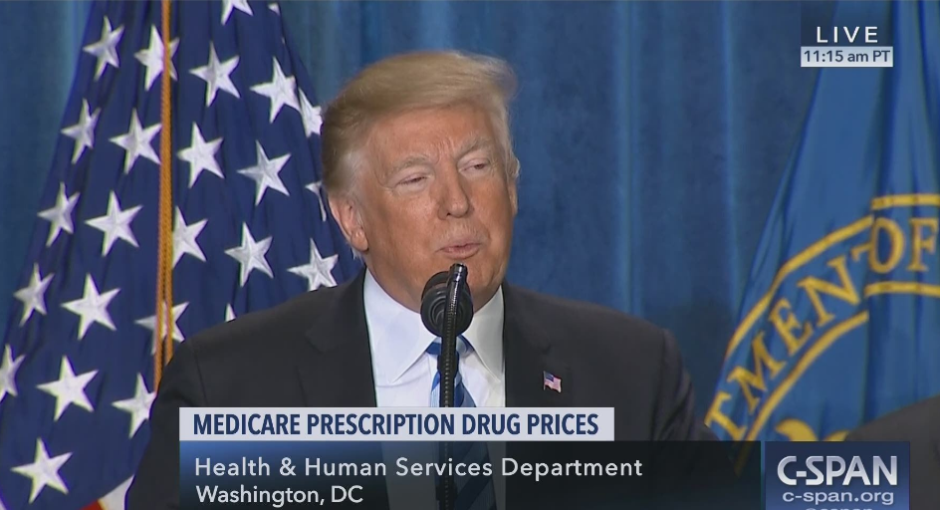The American Hospital Association (AHA) asked the Biden administration this week to immediately withdraw the Trump administration’s “most favored nation” (MFN) drug pricing interim final rule, in part, because of the damage it will do to 340B hospitals and “critical services and programs their patients rely on.”
“Substantial” Medicare Part B drug reimbursement cuts for 340B hospitals under the rule “will force hospitals to make difficult decisions about whether to reduce or even eliminate some services, as resources may need to be re-directed to ensure that patients can continue to receive drugs subject to the MFN rule,” AHA said in Jan. 25 comments to U.S. Centers for Medicare & Medicaid Services (CMS) Acting Administrator Liz Richter. “In addition, the revenue lost by hospitals will affect their ability to expand clinical services and invest in necessary infrastructure.”
The MFN rule—an interim final rule with comment—was published Nov. 27 and was supposed to take effect Jan. 1. Three federal district judges, in separate lawsuits filed by the drug and biotech industries and independent cancer-treatment centers, have temporarily enjoined the rule in whole or in part. At least four suits against the rule have been filed. Biotechnology Innovation Organization’s (BIO) suit has been stayed until April 23, to see how CMS responds to the comments it got. Tuesday was the last day for comments; CMS received 1,163. Withdrawing the rule is one of CMS’s options. Given the intense opposition to the MFN rule and the new administration’s desire to put its own stamp on drug pricing, it is highly likely that the rule will be withdrawn.
Under the rule, CMS would base federal reimbursement for 50 expensive, physician-administered drugs on the lowest price that drug manufacturers get in similar countries. Participation in the MFN payment model would be mandatory for 340B hospital outpatient departments reimbursed by Medicare. The model would force 340B hospitals, and other providers, either to get manufacturers somehow to agree to charge them less for the drugs, or to absorb financial losses from lower Medicare reimbursement.
340B hospitals already are being paid almost 30 percent less than they were in 2017 for the drugs included in the MFN model, under the Trump administration’s broader Medicare Part B drug reimbursement cuts for 340B hospitals through the hospital outpatient prospective payment system. The MFN interim final rule said 340B hospital reimbursement for the 50 drugs in the demonstration program would be whichever is less—the payment rate under MFN, or the rate under the OPPS cuts.
“To the extent these entities receive payment under the model that is lower than their current Medicare payment, there may be fewer resources available for their 340B program activities,” the MFN rule said.
AHA told CMS in its comments it analyzed the rule and “found that despite modest increases in revenue for 340B hospitals in the MFN payment model’s first year, “340B hospitals would see a net reduction in payment of approximately $15.4 billion over the seven-year demonstration.”
“For some 340B hospitals, these losses could be so damaging that it may jeopardize their continued participation in the program, thereby harming critical services and programs their patients rely on,” AHA said.


